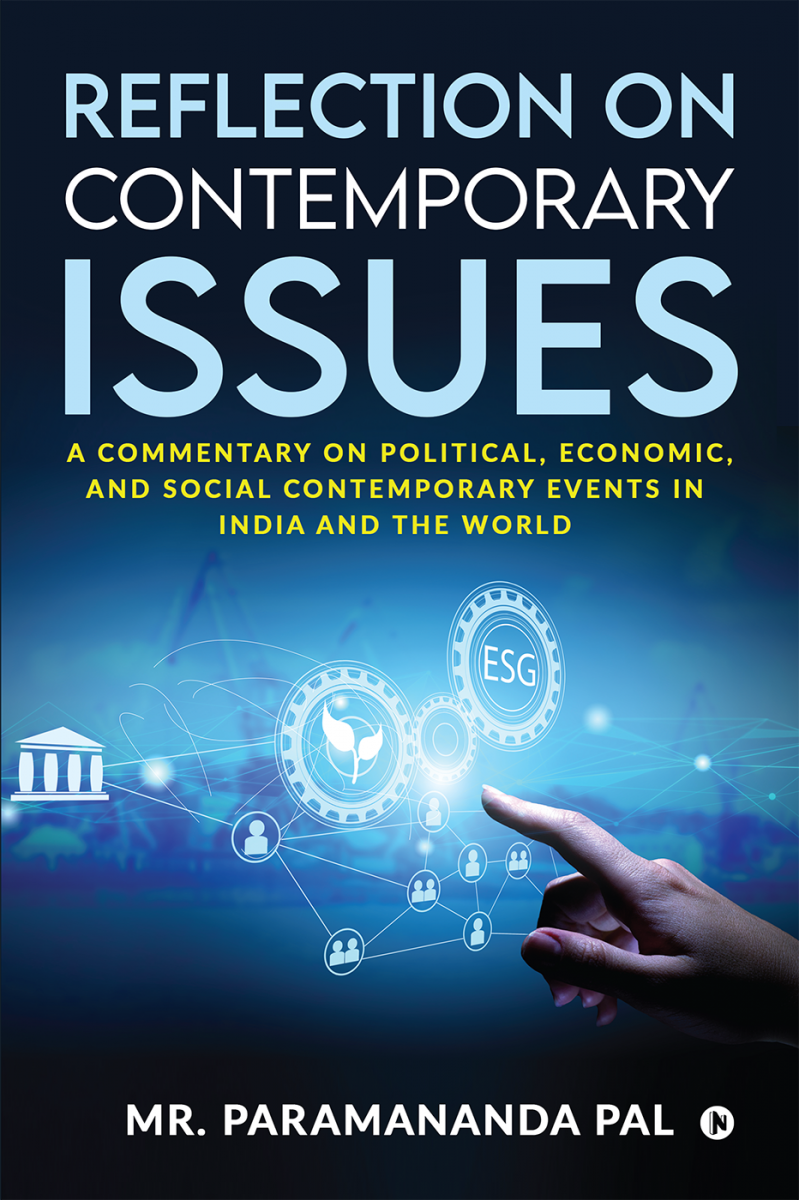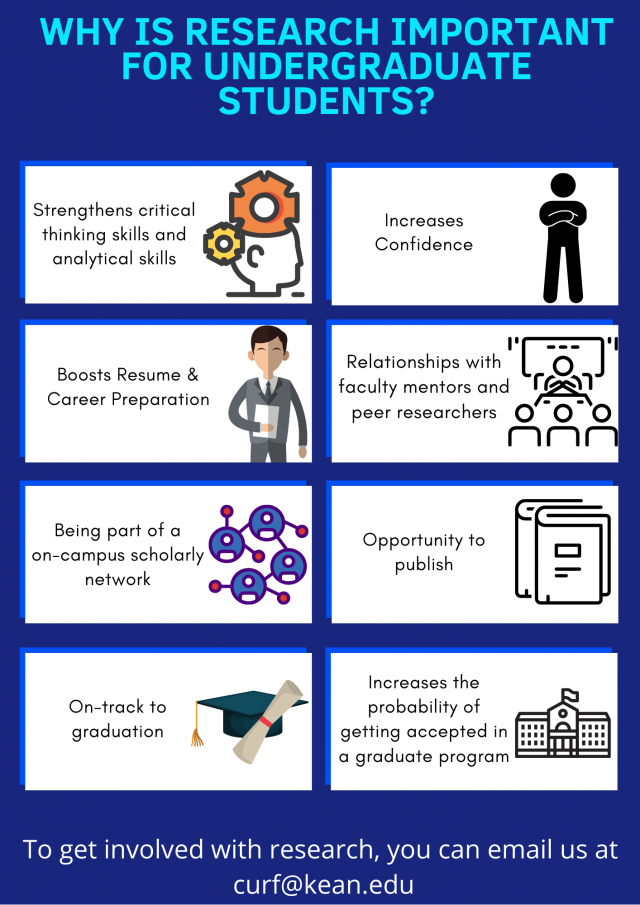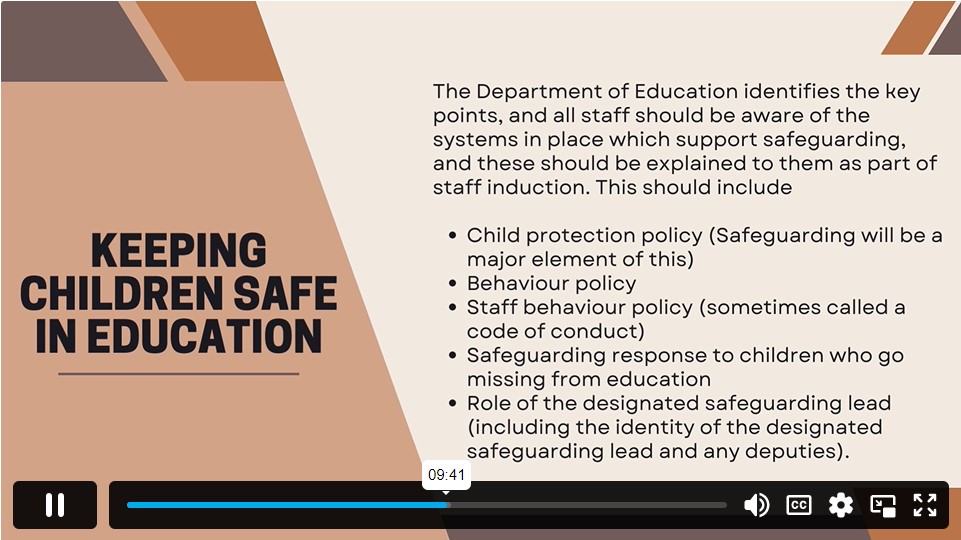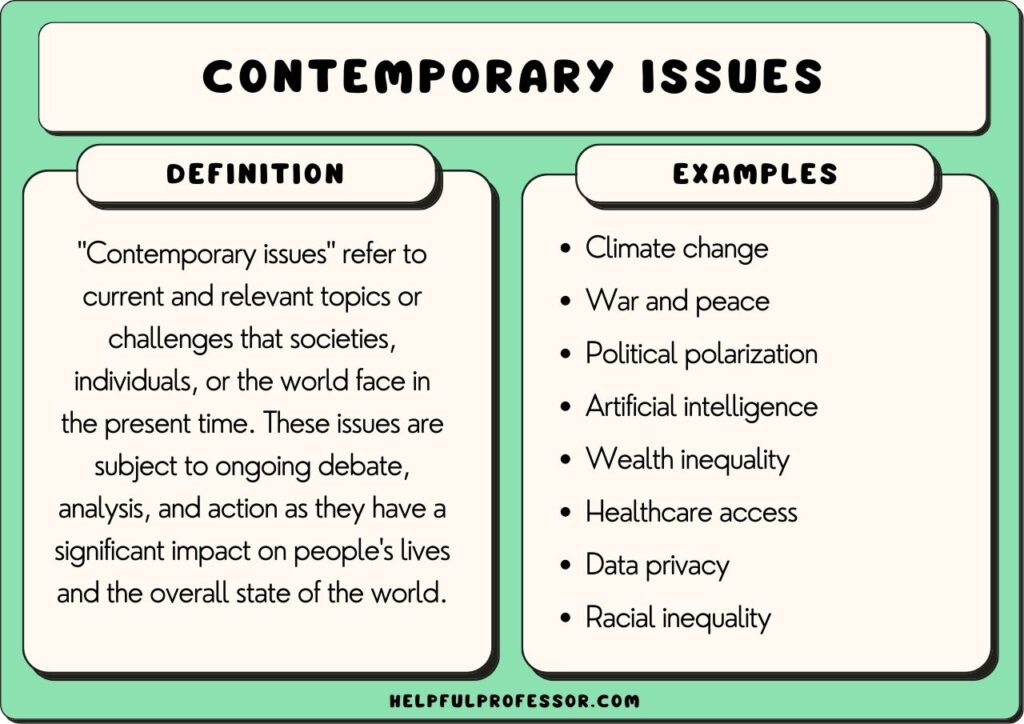In today’s fast-paced world, contemporary issues are constantly shaping the way we live, work, and interact with one another. From technological innovations to global environmental challenges, the world is changing in unprecedented ways. But what exactly are contemporary issues, and why should we care about studying them?
Contemporary issues are the significant, often complex problems facing society today. These range from climate change and economic inequality to technological advancements and social justice movements. Studying these issues helps people understand the world around them and equips them with the tools to navigate it effectively.

Contemporary issues are topics or problems that are relevant to society at a particular point in time. They arise from shifts in the political, economic, social, and technological landscape. These issues often have a global impact, requiring collective efforts to address them.
Examples of contemporary issues include:
- Climate Change: Global warming and environmental degradation.
- Social Justice Movements: Calls for racial equality, gender equity, and LGBTQ+ rights.
- Technological Advancements: The rise of artificial intelligence, automation, and data privacy concerns.
- Public Health Crises: Global pandemics, healthcare access, and mental health awareness.
- Economic Disparities: The widening gap between the rich and the poor, labor market changes, and financial instability.
Examples of Key Contemporary Issues and Their Impact
| Issue | Global Impact |
|---|---|
| Climate Change | Rising sea levels, extreme weather events, habitat loss |
| Social Justice | Increased advocacy for equality and legal reforms |
| Technology | Job displacement due to AI, data privacy concerns |
| Public Health | Global pandemics, increased mental health awareness |
| Economic Disparities | Income inequality, unemployment, economic migration |
Why It’s Important to Stay Informed About Contemporary Issues
Understanding contemporary issues allows individuals to better comprehend the forces shaping society. By staying informed, we can:
- Make informed decisions that positively impact both personal and professional life.
- Participate in civic duties like voting or advocacy with a clearer understanding of current affairs.
- Adapt to global changes by being aware of how these issues might influence future trends.

Why Should We Study Contemporary Issues?
Studying contemporary issues goes far beyond just being aware of what’s happening in the world today. It provides a deeper understanding of societal dynamics and equips individuals with the tools they need to navigate an ever-changing environment. But why should we make the effort to study these topics in-depth? Let’s explore some of the key reasons.
Understanding the World We Live In
The world today is interconnected, and the ripple effects of contemporary issues can be felt across borders. Understanding global challenges like climate change, political instability, and technological advances allows individuals to comprehend how these factors shape society on multiple levels.
By studying contemporary issues, individuals gain insight into:
- The causes behind global challenges such as environmental destruction or economic inequality.
- The consequences of societal trends, like how technological automation might influence job markets in the future.
- The interactions between different societal forces like politics, economics, and culture that contribute to larger global patterns.
Influence on Personal and Societal Decision-Making
Studying contemporary issues not only affects personal choices but also plays a critical role in how society operates. Informed decision-making becomes much easier when one has a clear understanding of the current global and local landscape.
For example, consider the topic of renewable energy. Studying contemporary environmental issues can inform personal decisions on energy consumption, while at a societal level, it may encourage policy-making around sustainable practices.
Benefits of understanding contemporary issues in decision-making:
- Personal decisions: Lifestyle changes, voting, consumer habits.
- Professional decisions: Career choices, corporate social responsibility, ethical decision-making.
- Policy and governance: Influencing local or national policies, participation in governance.
Case Study: Climate Change and Public Policy One of the most pressing contemporary issues is climate change. Those who study climate science and environmental policies can advocate for more sustainable practices and influence governments to adopt cleaner energy sources. Individuals informed on the topic are more likely to make environmentally friendly choices, such as reducing carbon footprints and supporting eco-conscious companies.
Impact on Civic Responsibility and Engagement
In a democratic society, being an active and informed citizen is crucial. Studying contemporary issues enables individuals to engage meaningfully in civic activities, such as voting, advocacy, or community organizing. When citizens understand the pressing issues of their time, they can hold elected officials accountable and push for policies that reflect their values.
How studying contemporary issues fosters civic responsibility:
- Informed voting: Voters can choose representatives who reflect their understanding of the current issues.
- Community engagement: Involvement in initiatives that address local and global problems.
- Advocacy for change: Supporting movements that align with one’s values, such as human rights or environmental protection.
By actively studying these topics, we not only become better decision-makers and more engaged citizens, but we also contribute to shaping a better future for all.

How Does Studying Contemporary Issues Improve Critical Thinking?
One of the most valuable skills gained from studying contemporary issues is the enhancement of critical thinking. Critical thinking involves analyzing facts, evaluating evidence, and forming a reasoned judgment, and these skills are crucial for understanding complex, evolving global problems.
The Role of Contemporary Issues in Developing Critical Thinking
Studying contemporary issues requires individuals to:
- Examine multiple perspectives: Many contemporary issues, such as immigration or technological ethics, have no single, straightforward solution. Being exposed to various viewpoints helps develop a nuanced understanding of these topics.
- Analyze conflicting information: In today’s information age, people are bombarded with opinions and data from various sources. Studying contemporary issues forces individuals to evaluate the validity of information, distinguish between reliable and unreliable sources, and synthesize what they’ve learned into a coherent viewpoint.
- Challenge personal biases: Engaging with contemporary issues often confronts personal beliefs and assumptions. By exploring different sides of an issue, individuals can refine their thinking and broaden their worldview.
For instance, in the case of artificial intelligence (AI) and its potential impact on jobs, critical thinkers would explore how AI might displace certain jobs but also create new industries. They would weigh the ethical implications and consider both the risks and benefits of technological advancements.
How Analyzing Modern Problems Encourages Deeper Understanding
By focusing on contemporary issues, students and professionals are encouraged to go beyond surface-level understanding. Critical thinking involves asking deeper questions, such as:
- What are the root causes of this issue?
- What are the long-term consequences of different solutions?
- How do various societal factors (economic, political, cultural) interplay in shaping this issue?
Example: Social Media’s Role in Society Take the issue of social media’s influence on modern communication. A critical thinker studying this would ask:
- How has social media altered interpersonal communication and relationships?
- What role does social media play in spreading misinformation?
- How can we balance the benefits of connectivity with the dangers of misinformation?
Steps to Developing Critical Thinking Through Contemporary Issues
- Gather diverse perspectives: Read articles, watch documentaries, and listen to experts on both sides of the issue.
- Analyze the evidence: Review data, studies, and real-world case studies that illustrate the impact of the issue.
- Evaluate potential solutions: Consider the advantages and drawbacks of different approaches to solving the problem.
- Question assumptions: Challenge your initial thoughts and beliefs by exploring how others see the issue.
Examples of Contemporary Issues that Foster Critical Thinking
| Contemporary Issue | Critical Thinking Questions |
|---|---|
| Climate Change | What are the primary drivers of climate change? |
| How do economic and political interests impact environmental policy? | |
| Technology and Privacy | How does technology improve life, and what risks does it pose? |
| How should governments regulate the use of personal data? | |
| Social Justice Movements | How do historical and systemic factors contribute to inequality? |
| What actions are most effective in promoting equality and justice? |
By delving into these questions, individuals not only gain a deeper understanding of the issue but also refine their ability to think critically about other complex topics.
Real-World Application of Critical Thinking in Problem Solving
Critical thinking gained through studying contemporary issues is not confined to the classroom or academic discussions; it plays a key role in real-world problem-solving. For example, professionals in public policy, healthcare, and business must constantly evaluate current trends and challenges, such as changes in regulations, technological advancements, or social shifts.
Case Study: COVID-19 Response The global pandemic of COVID-19 demanded critical thinking on many levels. Governments, scientists, and health professionals had to make decisions based on constantly evolving data. The ability to think critically—evaluating new information, questioning strategies, and balancing public health with economic concerns—was essential in shaping policies and responses that saved lives.
In conclusion, studying contemporary issues hones our critical thinking skills, allowing us to make informed judgments, propose well-rounded solutions, and better navigate the complexities of the modern world.

How Does Studying Contemporary Issues Prepare You for the Future?
Studying contemporary issues equips individuals with the knowledge and skills to thrive in a rapidly changing world. As global challenges continue to evolve, understanding these issues becomes crucial for both personal and professional growth. Whether you’re preparing for a career in technology, healthcare, business, or public policy, being informed about current trends and challenges can help you stay competitive and adaptable in the workforce.
Relevance to Career Preparation and Future Opportunities
In almost every professional field, being aware of contemporary issues is critical to staying relevant. As industries evolve, companies and organizations look for employees who not only possess technical skills but also understand the larger context in which their work exists. This makes studying contemporary issues essential for preparing for the future job market.
For example:
- Technology Sector: Understanding the impact of AI, automation, and cybersecurity concerns helps tech professionals anticipate changes and adapt to new roles.
- Healthcare: Public health professionals need to stay updated on global health crises, medical advancements, and changing healthcare regulations to provide effective care and develop innovative solutions.
- Business: Entrepreneurs and corporate leaders who stay informed about economic trends, consumer behavior, and social movements can better anticipate market changes and develop strategies that align with societal values.
How Contemporary Issues Help in Future Career Development
- Keeping up with Industry Trends: Staying informed about technological, economic, and social trends helps individuals adapt their skills to match future demands.
- Anticipating Challenges: By understanding global challenges, individuals can anticipate potential obstacles and proactively seek solutions.
- Developing Leadership Skills: Leaders who are aware of contemporary issues can make informed decisions and guide their teams through complex problems.
- Building a Global Perspective: In an increasingly interconnected world, professionals need to understand how global issues affect local markets and industries.
Example: Technology and Automation In the next decade, automation and AI are expected to transform industries, creating new roles while rendering others obsolete. Studying the implications of automation on the job market allows individuals to prepare for these changes by developing new skills or exploring careers that are likely to expand in the future.
Enhances Problem-Solving Skills for the Future
Studying contemporary issues is an excellent way to build and sharpen problem-solving skills. Many of the world’s most pressing challenges, such as climate change or the future of work, don’t have clear-cut solutions. Instead, they require creative, innovative thinking and collaboration.
By engaging with contemporary issues, individuals learn to:
- Identify key problems: Recognize what needs to be addressed and understand the root causes.
- Brainstorm solutions: Think of multiple possible solutions and weigh the pros and cons of each.
- Implement strategies: Develop actionable plans to tackle complex issues, both in personal life and professional settings.
Real-World Application: Sustainability and Business Innovation
As climate change continues to reshape the global landscape, businesses are increasingly prioritizing sustainability. Those who study environmental issues are better equipped to lead initiatives that reduce carbon footprints, implement sustainable practices, and develop green technologies. For example, companies like Tesla and Beyond Meat have built successful business models around sustainability, showcasing how understanding contemporary issues can lead to business innovation and long-term success.
Adapting to Global Changes
The rapid pace of change—whether technological, political, or environmental—requires individuals to be adaptable. Studying contemporary issues helps build adaptability by keeping individuals informed of what changes are occurring and how they might affect various aspects of life.
Why Adaptability Is Key to Success in a Changing World
- Technology Evolution: As new technologies emerge, adaptability allows individuals to learn and integrate new tools quickly.
- Economic Shifts: Global events like recessions or trade disruptions can impact job markets, requiring professionals to shift their approach.
- Environmental Changes: Climate change may affect industries such as agriculture, tourism, and energy, requiring innovative adaptations.
- Social and Cultural Shifts: Awareness of movements like social justice or gender equity can influence workplace policies and culture.
Case Study: Remote Work During the COVID-19 Pandemic The COVID-19 pandemic dramatically shifted the way people work, with many industries moving to remote work models. Those who were adaptable and understood the contemporary issue of digital transformation found themselves better prepared to work from home and maintain productivity. This also emphasized the need for digital literacy and remote collaboration skills.